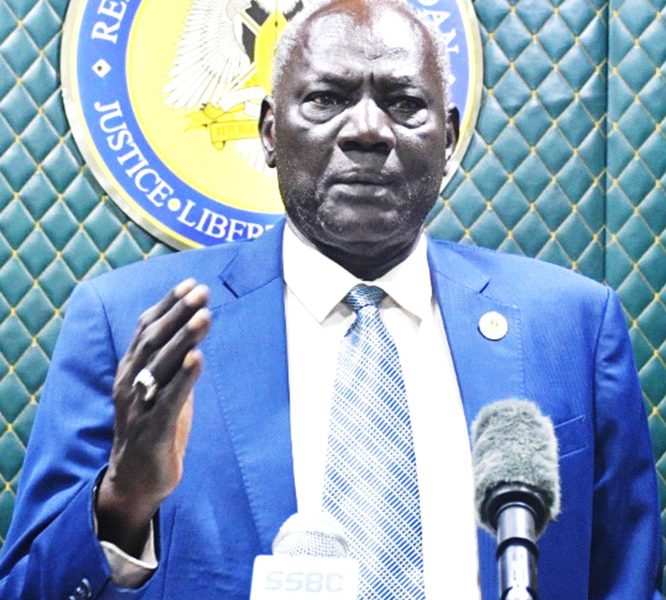By Aweye Teddy Onam
South Sudan’s council of ministers, in its regular meeting yesterday, approved the strategy and policy that will prompt the government and its partners to cater for needs of vulnerable groups in South Sudan.
Minister of Humanitarian Affairs and Disaster Management on had presented the “South Sudan Durable Solutions Strategy and Plans of Action for Refugees, Internally Displaced Persons, Returnees, and Host Communities.”
Government spokesperson, Michael Makuei, said the overall plan will be to provide for all the vulnerable groups, especially those who are now escaping war in neighboring Sudan.
“So, this is the plan that was prepared for the Ministry of Humanitarian Affairs, and this plan, of course, needs funds, and all these vulnerable groups, of course, when they are coming, even the host communities will be affected,” Makuei told reporters on Friday after the meeting.
He hinted that if the plan as such is passed, then they need to actualize it by preparing budgets and all the other implementation plans to be presented later to the Cabinet for further consideration.
“So, that was passed, and this plan was divided into three. You have the short term, which starts from zero up to one year, and the second term starts from one up to three years, and the long term starts from three up to five years,” the government spokesperson highlighted.
“These are the plans that will immediately be implemented, and as such, they have to come up with the short-term plan, which they have to prepare and present to the Cabinet”, he added.
The Humanitarian Affairs Minister, Albino Akol Atak, said on Thursday that the government and the International Organization for Immigration (IOM) took on the responsibility of transporting the returnees who fled the raging war in neighboring Sudan to avoid congestion in the transit centers.
“Since the eruption of Sudan’s war until October 3rd, 2023, the total arrival of the returnees is now 300,000 people, of which 91% are South Sudanese and the rest are refugees from Sudan, Ethiopia, Somalia, Uganda, and Kenya”, Akol disclosed.




